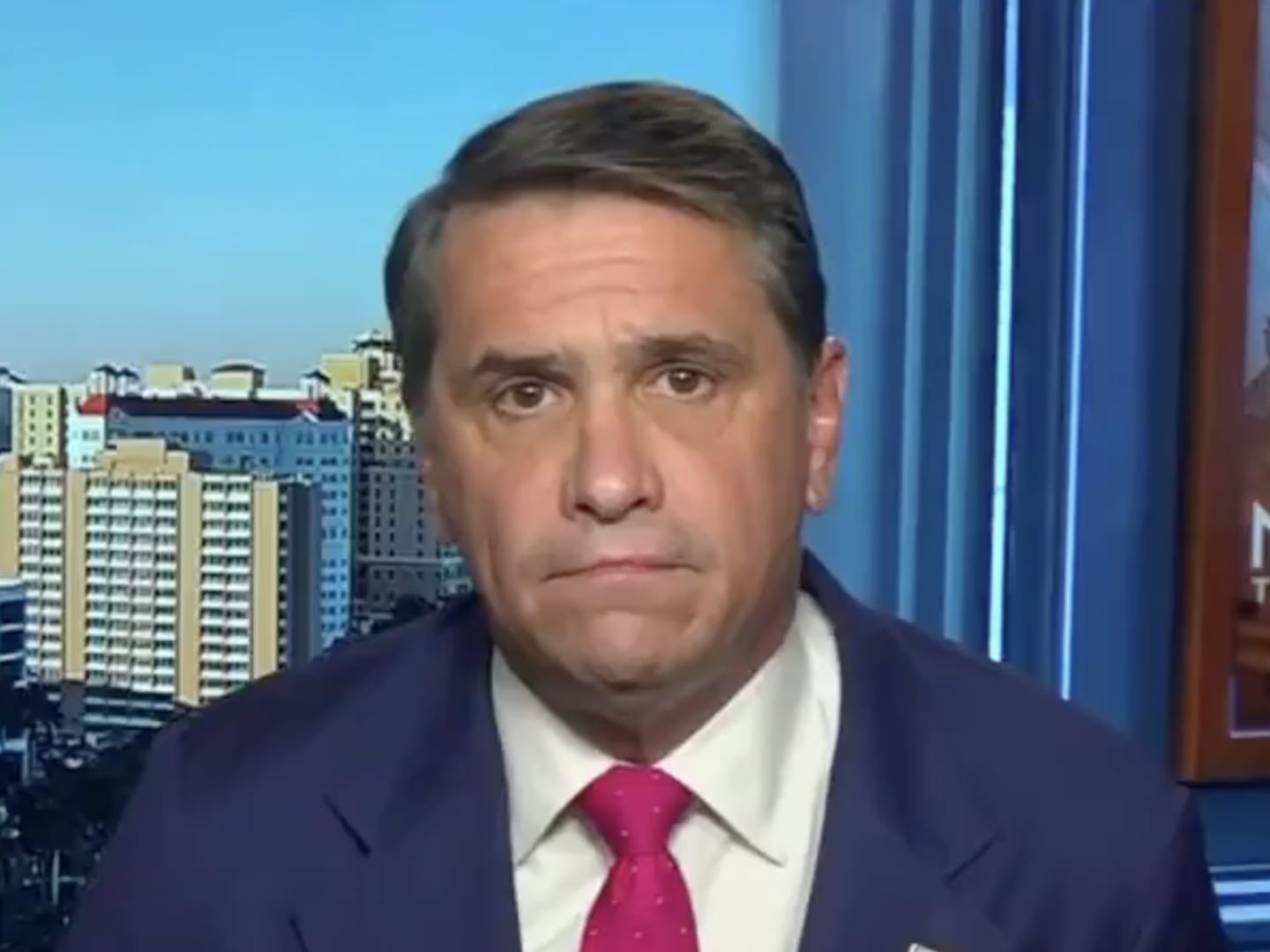After Dan Reed’s bombshell documentary Leaving Neverland, about the sexual abuse allegations leveled against Michael Jackson, premiered in 2019, it seemed as though public opinion on the pop superstar had been determined: He was unforgivable, case closed. And that did seem to be the guiding discourse… for a little while, at least.
“I remember thinking afterwards, that was a wrap. Based on talking to people in my social circle who all watched it or at least read about it, it really did feel like a turning point,” says Leon Neyfakh, co-host of the new podcast Think Twice: Michael Jackson. “But then you look around a couple of years later and it doesn’t really feel like it made that big of a dent. We were interested in why and how that works. How do we as a culture decide what to move on from and what not to move on from? How do people decide what they believe?”
Think Twice—a new podcast from Audible and Wondery, co-produced by Prologue Projects—attempts to answer those questions by investigating Jackson’s staying power as a pop culture icon who has faced horrifying allegations. For Neyfakh, it continues his run of deeply reported podcast endeavors, including Slow Burn, in which he told the stories of Watergate and the Clinton impeachment, and Fiasco, which has covered major historical events like the AIDS crisis and the Bush vs. Gore election. The Michael Jackson phenomenon, Neyfakh argues, is another such culture-shifting story.
“If you do have a jones for uncovering unfamiliar corners of a really familiar-seeming story, you can’t really do better than taking on Michael Jackson,” he tells The Daily Beast. “It began with realizing that Michael Jackson is probably the most interesting person who’s ever lived. Both because he had this unique, world-historic talent, but also because he led this utterly singular life, for better or for worse.”
After conceiving the idea for Think Twice, Neyfakh recruited his co-host: hip-hop radio veteran Jay Smooth, who grew up in Harlem as a big Jackson fan. Neyfakh had seen and heard Smooth’s work, and points to a YouTube video after Jackson’s death in 2009 in which Smooth interviewed grieving fans gathered at the Apollo Theater who were trying to process the shocking news. Neyfakh rightly recognized that Smooth was interested in the same “gray areas” of Jackson’s legacy that he was—though the radio host admits it was an intimidating undertaking.
“He told me the subject would be Michael Jackson and I had a whole mix of feelings. Because that’s a fascinating topic, but a topic that’s still fraught and unsettled for me,” Smooth says. “I have so many feelings about Michael that I’m still trying to figure out what to do with, as someone who I loved really deeply. And that’s still inside me at the same time as I consider whether he may have done things that are unspeakable. I still, in 2023, am figuring out exactly where to place all of that. And I think that’s true for a lot of people, and this podcast could be a way to try and revisit his life and story with that in mind, and see what we could make sense of, how we could understand things differently.”
In revisiting and reexamining that story, Neyfakh and Smooth take us from Jackson’s birth all the way through the aftermath of his death, taking plenty of enlightening and entertaining pitstops along the way—we learn, for example, about Jackson’s savvy relationships with tabloid press; we get a window into his days in the Studio 54 era of New York; and we learn about what happened behind the scenes of his 1993 Super Bowl halftime performance. What you won’t find in Think Twice is a re-litigation of all the accusations against Jackson; they’re of course covered at length, but the hosts are more interested in reconstructing how the story of his myth unfolded and then fell apart in real time.
“I think for some people it was probably important that we weren’t just here to try to bury Michael once and for all,” Neyfakh says, with Smooth adding, “We’re not coming to this with any agenda to change anyone’s minds about how they feel about Michael. We’re not claiming or intending to have the final answers on anything.”
The podcast’s biggest draw may be the sheer scope of people involved in it. Neyfakh and Smooth estimate they interviewed close to 100 people for the show’s 10 episodes (all of which are available now), and they gravitated toward those “who aren’t the most obvious people.” Among them: a talent booker in Gary, Indiana, who got The Jackson 5 into their first talent show; one of Jackson’s friends from school, with whom he studied the Bible; the sculptor of the statue of Jackson that appears on the cover of his ninth album, HIStory; jurors in his 2005 trial; and even fellow Jehovah’s Witnesses who went door to door with a young Michael and who lend perspective on the friction he felt between his church and his creativity.
“I’m always amazed at how much you can learn by talking to people who saw something happen directly in front of them but who haven’t necessarily been interviewed a million times. People who seem like peripheral characters, for lack of a better word,” Neyfakh says. “I’m attracted to those people who had a front row seat to history and who can tell us about some little corner of it.”
That’s immediately clear from episode 1—the first person you hear from is actor/comedian Doug E. Doug (yes, that Doug E. Doug), who recalls Jackson’s surprise appearance at the 1994 NAACP Image Awards, where he tried to shore up Black support amid the child molestation allegations. Doug was in the audience that night and would later become a meme for his overexcited reaction to seeing Jackson at the podium. But decades later, he astutely observes on the podcast, “It may be one of the first times in [Jackson’s] career that he ever made this kind of overt pitch, but it was in service of his own skin.”
Later in that first episode, we hear from Stephen King, another person you probably never would have expected to hear on a Michael Jackson podcast. He’s there to talk about co-authoring “Is This Scary?”, a horror-themed short film Jackson made in which he plays an outcast who lives in a haunted mansion and is accused by a mob of villagers of spending unsupervised time with their kids and doing magic for them. (The real-life parallels are not lost on anyone.)
“We were all so amazed that before anyone had ever made any allegations against him, Michael wanted to make this video,” Neyfakh says of the never-released film. He adds: “A big surprise for me from making the show is that Michael himself didn’t really seem to think that you can or should separate him from his art. He made art about the allegations. He engaged with them through his music, through music videos.”
That gets to the age-old question of whether anyone can—or should—separate the art from the artist. It’s a conundrum for Smooth, who avoids playing Jackson on his own radio show, but acknowledges that his all-time discography will never simply go away.
“It’s not happening. I mean, it’s the most perfectly realized pop music that’s ever been made. People are going to be drawn to it and love it for all eternity. There’s no escaping that,” Smooth says. “I think it’s up to us to figure out, what do we do with the feelings that that music brings us in relation to the person it came from? That’s the bigger question we’re left with.”
Neyfakh, on the other hand, who didn’t grow up a Jackson fan and only came to his music later in life, admits that making Think Twice actually made listening to his music easier to digest.
“This may be counterintuitive, but I can enjoy Michael Jackson’s music more now than I could before. Because even when I listened to songs that I love, I always had this feeling like I don’t really know the truth or I don’t really know enough. It kind of loomed over me. And now, I feel like I do know enough,” he explains. “People always ask can you separate the art from the artist, and I think in practice no one does. You bring to someone’s work the things you know about them. And now I just know a lot more, and that makes it a richer experience to engage with the art itself.
“It’s kind of a stunted thought process if all you know is the legend, if all you know is the canonical version of his story that’s sort of full of half-remembered vibes,” he continues. “It’s hard to work through some of these questions. But I think when you go deep and you lay out the story meticulously, you can feel more confident in your thought process, and it might not lead you to chasing your own tail forever. It might actually help.”








